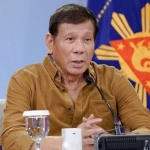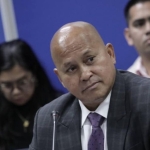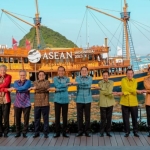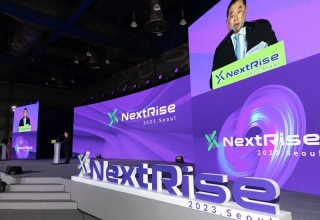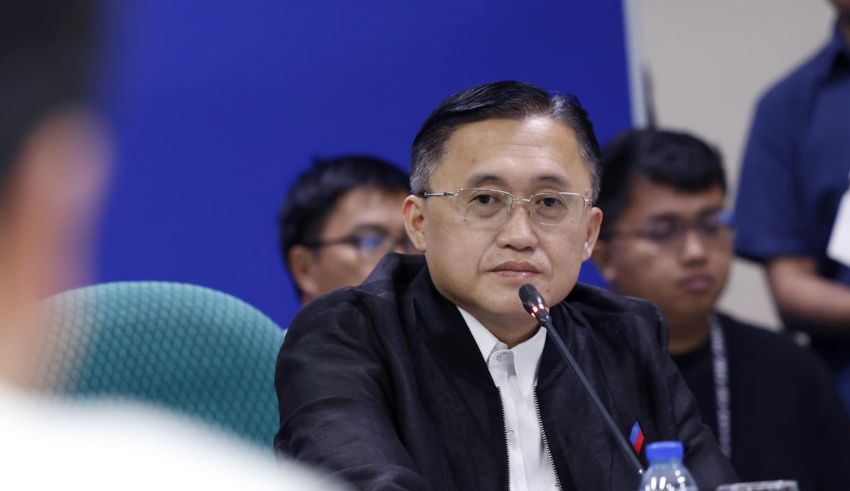
Fresh claims that Senator Christopher Lawrence “Bong” Go, once a close friend of President Rodrigo Duterte, might have participated in a “cash-for-kills” reward system have revived the long-running controversy over the extrajudicial killings (EJKs) connected to the war on drugs. Go has angrily denied any participation in the operational elements of the brutal anti-narcotics campaign as the debate gets more intense. Still, the truth is unclear given fresh witness testimony and the House Quad Committee’s accelerating research effort. The events as they are developing have sparked debates about the war on drugs, responsibility, and justice in the Philippines once more.
Denial by Bong Go and Demand for Just Research
Key player throughout the Duterte presidency, Senator Bong Go fuels most of the debate. Go strongly denied claims made by retired police colonel Royina Garma, stressing he had no influence on the execution of the drug campaign. Emphasizing that no cash incentives were given in return for lives during the Duterte government’s war on drugs, he said, “Walang reward system na iniimplementa noon kapalit ang buhay ng sinuman.”
Go further stated that he was Special Assistant to the President (SAP), not in charge of overseeing law enforcement operations or handling law enforcement related monies. Allow me to be quite clear. Walang kinalaman ang aking opisina sa operasyon at organizational level ng kapulisan. Go stated, separating himself from the operational and financial sides of the contentious campaign, Hindi rin ako mismo humahawak ng pera ng Pangulo dahil yan parte ng mga tungkulin ko noon.
Go, despite his unequivocal denials, voiced worries about the politicizing of the inquiry, saying, “Nakakalungkot na baliktad na ang panahon ngayon.” While supporting the Duterte government’s larger anti-drug initiatives, Hinahaluan ng pulitika ang mga imbestigasyon at binabalewala na ang pinagsikapan ng nakaraang administrasyon. He has asked for a “fair and impartial” Senate investigation into the claims.
Examining closer the claims of the reward system
When Garma turned in an affidavit linking Duterte and Go to a system supposedly paying police officials financially for killing drug suspects, the debate took a major turn. Previously a high-ranking police official during the height of Duterte’s drug war, Garma asserted that the reward system was based on the “Davao Model,” an anti-drug campaign implemented in Davao City, Duterte’s hometown, when he was mayor. Garma claims that Duterte personally gave her instructions to assist in national replication of this strategy, and Go supposedly coordinated the system.
According to reports, the “Davao Model” pushed police officials to execute drug suspects, therefore fostering a pattern of extrajudicial killings during the national drug campaign. Garma’s evidence begs important issues about the internal operations of Duterte’s campaign and whether such a reward scheme helped to explain the concerning drug-related death toll under his presidency.
The concept of a reward system has not only been raised before but also lately. Former Philippine National Police (PNP) officials stated in August the existence of a “quota and rewards system” under the Duterte government, therefore raising questions on the validity of the operations of the drug war. These allegations imply that the extrajudicial executions might not have been isolated events of police misbehavior but rather a methodical technique directed by superiors.
Muking: Crucially Important in the Reported Financial Dealings
An aide of Go, known as “Muking,” has been called for inquiry over the financial elements of the reward scheme as part of the House Quad Committee’s investigation. Surigao del Norte Rep. Robert Ace Barbers, the general committee chairperson, claims that “Muking” was allegedly in charge of distributing funds to police personnel following the conclusion of particular missions, implying that there was in fact a financial incentive structure in place. Following drug war missions were judged “successful,” thus Muking is said to have been crucial in handling the money allocated to police officials.
Barbers stated that despite the high-profile character of the people engaged, the continuous investigation is not meant to attack Duterte and his associates. “May biglaang lumalabas na witnesses. Hindi ho namin kontrolado yan, sila ho ang pumupunta sa Kongreso,” Barbers said, stressing that witnesses had freely come forward with testimony requiring more inquiry. According to Barbers, the committee’s goal is to find the truth; witnesses are expected to provide affidavits supporting their assertions.
Kerwin Espinosa, a drug kingpin who turned into a state witness, accused Senator Ronald “Bato” dela Rosa, former PNP head and one of Duterte’s strongest allies, of forcing him into accusing opposition senator Leila de Lima with the illicit drug trade in a parallel disclosure. Vocal opponent of Duterte’s drug campaign, De Lima was arrested years ago on drug-related allegations. Espinosa’s allegation begs questions regarding the possible manipulation of evidence and testimony during the height of the drug war, therefore undermining the credibility of the whole campaign.
Like Go, Dela Rosa has maintained her innocence and justified his part in the drug war as PNP head. But Espinosa’s assertions add to the already mounting list of questions about the internal dynamics of the drug war and whether important officials helped to shape the story to fit political objectives.
Keep Reading
The Road Ahead: Guaranturing Justice and Responsibility
The road to responsibility for the Duterte government’s drug war stays convoluted and rife with political tensions as fresh testimony surfaces and both the Senate and the House pursue separate inquiries. Go’s robust denials and demand of a fair investigation draw attention to the careful balance between political allegiance and the search for justice. It is abundantly evident as the accusations mount that the inquiry has to remain objective and open to guarantee that, should evidence of human rights violations surface, those guilty be held liable.
High-ranking officials like Duterte, Go, and Dela Rosa’s participation in these claims has increased public attention and underlined the need for exhaustive investigations. The victims of extrajudicial executions need justice; the Philippine people deserve responses. The continuous research presents a vital chance to review the war on drugs and guarantee that next measures give the rule of law top priority and respect of human rights top importance.
Finally, will the Truth Surface?
The focus stays on Bong Go, Rodrigo Duterte, and the larger machinery driving the anti-narcotics operation as the probe on the claimed reward system of the drug war develops. Go’s denial and demands for openness capture the great stakes of this investigation, but the story is far from clear given witnesses like Garma and Espinosa offering incriminating evidence. The quest to the truth keeps on, maybe changing popular perception of the Duterte government and its dubious war on drugs.
The long-standing debate over the extrajudicial killings (EJKs) linked with the Duterte government’s war on drugs has resurfaced with fresh allegations that Senator Christopher Lawrence “Bong,” once a trusted friend of President Rodrigo Duterte, may have been involved in a “cash-for-kills” reward system, either or not Go played a role in the alleged reward system. Go has angrily denied any participation in the operational elements of the brutal anti-narcotics campaign as the debate gets more intense. Still, the truth is unclear given fresh witness testimony and the House Quad Committee’s accelerating research effort. The events as they are developing have sparked debates about the war on drugs, responsibility, and justice in the Philippines once more.
